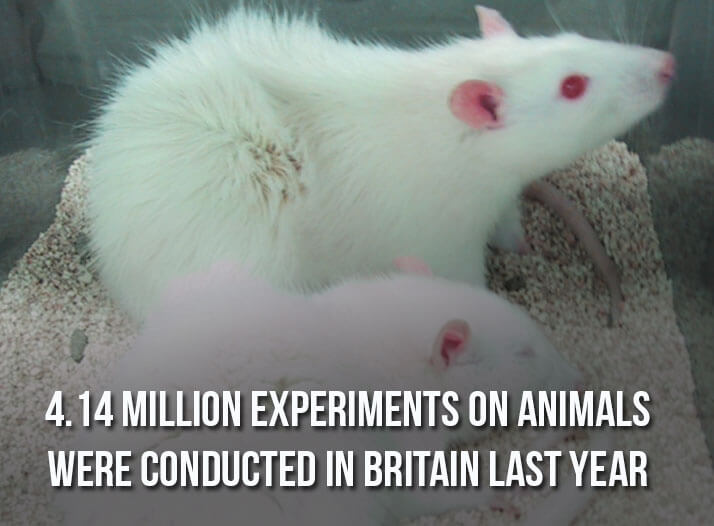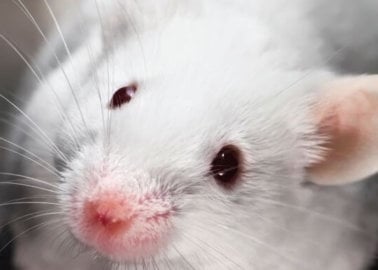4.14 Million Experiments on Animals Were Carried Out in Britain Last Year. Why?
The Home Office has just released its annual statistics on the number of scientific procedures performed on animals in Britain last year. They make for shocking reading.
A staggering 4.14 million scientific procedures were conducted on animals in British laboratories during 2015.
These procedures included:
- 3 million experiments on mice
- 21,831 experiments on guinea pigs
- 8,356 experiments on horses and other equids
- 4,643 experiments on dogs
- 3,612 experiments on primates
126,000 animals didn’t regain consciousness after experiments classified as ‘non-recovery’. And a further 185,000 experiments were classed as ‘severe’ in the level of suffering caused to the animals – even under the government’s flawed classification system.
And if that wasn’t bad enough, an additional 56,000 animals were made to experience severe pain and distress without even being used in experiments. These genetically modified animals – who often have painful, unnatural mutations – are kept in laboratories to allow experimenters to keep on breeding more animals from them.
It’s shameful that experimenters continue to imprison, burn, poison, drill into, cut open, and kill cats, dogs, rabbits, monkeys, and other animals. No animal deserves to suffer in these ways. And there is overwhelming evidence that experiments on animals are often the least productive and sometimes the most counterproductive way to try to gain information.
Shamefully, as one of the largest animal-testing nations in Europe, Britain is falling far behind more progressive countries which recognise that exciting approaches such as human-on-a-chip, 3-D human skin cultures, and high speed computer models can predict far more accurately what will happen in humans than experiments on animals do.
As Britain prepares to leave the European Union, we must make sure that we go forwards, not backwards, on cruel animal tests. Britain needs to take the opportunity to become a global leader in innovative science by becoming the first country to commit to phasing out tests on animals and investing only in cutting-edge non-animal research methodologies.
This is the future of science, and for both humans and other animals, we would do well to seize it.




